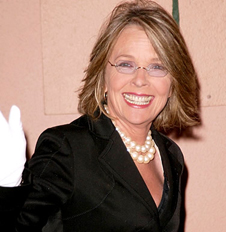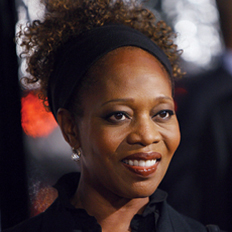I’ve had something rolling around in my head for a while since Dear Author asked, “What’s wrong with a C Review?” More recently, a discussion at Racy Romance Reviews involving a book I must get expanded on the conversation at Dear Author (I have a sneaking suspicion RfP and I are on the same wavelength with regard to this).
To clarify: C means neither good nor bad, but average.
To me, an average book = meh = forgettable. In my opinion, if a book is forgettable, it didn’t finish the job it started. What I haven’t figured out yet is if a book is so bad it’s not possible to forget, did it do its job?
I’m trying to distill this out for myself, but I’m reading a lot of books lately that are meh. In fact, they are so meh I forget I was reading them the minute I turn my ebook reader off to tend to other things. As I said on the Dear Author thread, I found a dozen books by bestselling authors that I didn’t remember buying and, worse, that I didn’t remember reading until I scanned the blurbs. Mind you, these are books that got high marks at Dear Author and Smart Bitches (I know, ’cause I went back and looked).
Now we have DocTurtle reading a Harlequin Blaze as a challenge by Smart Bitches to read a “real romance” and see how wonderful it is. Turns out he’s having fun, but not of the type everyone expected. He seems to read in fits and starts, so obviously it’s not keeping his eyeballs glued to the pages, unless that’s the type of reader he is, which I don’t know.
So what is this meh? Where’s it coming from? One of the last non-meh books I read was Ann’s because it was so damned different. What made it different?
I’ll tell you what made it different. She broke all the “rules.” Somewhere, somehow, with the evolution of RWA and its sister organizations and their writing workshops, easier access to agents and editors, more stringent-yet-vague criteria on how to write a query letter, and more propagation of some writing “rules” (the ones that would get you a D in any college creative writing course–ask me how I know), there’s been some weird homogenization. (And I started noticing this really begin to gather steam in the early ’90s.) Yeah, you can have unique plot devices or tried-and-true plot devices done differently, but essentially, the voice has become the same: same meter, same literalness (thanks, RfP) to supposedly make for clarity, and same explanation of things that I (Random Reader with a modicum of intelligence) don’t have to be told and would have rather inferred or been left wondering.
Tired, y’all. I’m tired of reading the same stuff over and over again. Even the stuff I’m getting mad at and simply not finishing–one reason is because the voice is tired on top of other problems. Everybody’s taking voice lessons from the same singing teacher out of the same songbook. The only reason I remember any of these books is to say, “Oh. That.” And off it goes to be archived on CD or in the box to take to the used bookstore–without finishing. One book I’ve been looking forward to reading and bought on its release date (because I had it on my calendar as a reminder) was a real let-down.
This “write from the heart and you’ll get sold if you try hard enough” cheerleading? Bullshit. Don’t write from the heart; write from the rules. Write what the gatekeepers tell you to write and, more importantly, how they tell you to write it. Obviously, lots of people love it, and I am the High Priestess of Capitalism, so I’m not arguing with an established market.
But…if everyone’s following the rules, how do you know the reading public wouldn’t like what you wrote from the heart? I know how you know. The gatekeepers won’t buy it because why mess with the homogeneity of voice? People like it; people buy it. [Insert philosophical plug for doing things independently, but that’s not what this post is about.]
Nothing, but nothing, makes me realize how homogenized the romance voice has become until I read something different. Kristan Higgins’s books were different and I enjoyed them muchly (although I heard some whisperings they weren’t romance so much as women’s fiction/chick lit and honestly I don’t know what the hell difference it makes). Ann’s, of course. Laura Kinsale, always. Eva Gale, who came here as a poster (never heard of her before that), whose voice (albeit short pieces) just pushes all my right buttons (not talking about the erotic aspect, either).
Remember, I’m not talking about archetypes, plots, and themes. I’m talking about rhythm, word choice (e.g., the obsessing over avoiding “be” verbs and adverbs that spawns ridiculously tedious prose), dialog tags, over-explanation, and, yes, punctuation, which is one of the biggest tools in keeping your rhythm and singing in your own voice.
RfP said it best over at Racy Romance Reviews:
My most frequent complaint lately is that genre romance has no voice: it’s overly literal and can over-explain mundane detail to the detriment of style. Some of my favorite novels include more impressionistic passages in which I’m not sure exactly what’s happening, but they’re wonderfully referential and evocative.
I mean, come on. If I’ve noticed it and other people have noticed it enough to remark upon it and complain about it (and we’re only a fraction of a percent of the reading public), maybe there are a lot more people tired of it than the gatekeepers think.

 Disclaimer: I can’t stand Hillary Clinton. At all. But… I find her very attractive in this picture. I’m not even going to chalk it up to the hair (very nice) or necklace (meh—not a fan of chunk jewelry). Perhaps the smile? Yes, that’s it. It looks…genuine. Happy. Even as much as I despise her, I didn’t like the constant yammering on her looks. On the other hand, if she’d let this side of her show more often, would she have gotten farther?
Disclaimer: I can’t stand Hillary Clinton. At all. But… I find her very attractive in this picture. I’m not even going to chalk it up to the hair (very nice) or necklace (meh—not a fan of chunk jewelry). Perhaps the smile? Yes, that’s it. It looks…genuine. Happy. Even as much as I despise her, I didn’t like the constant yammering on her looks. On the other hand, if she’d let this side of her show more often, would she have gotten farther?


